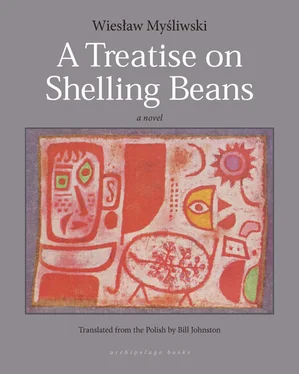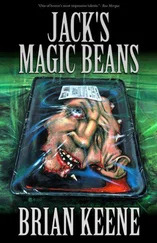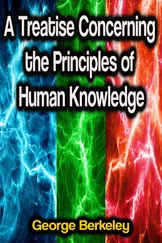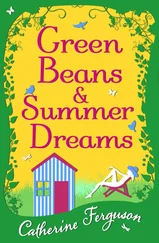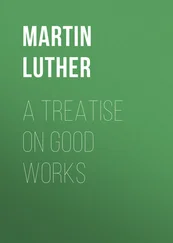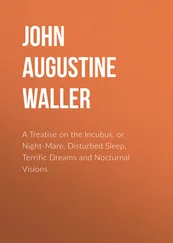No animal came by, no bird flew over or perched on a tree. It was only some time later that I saw a hare, though even then I just caught a glimpse of it on top of the snow. Some time after that, I don’t know how long it could have been since I saw the hare, I wasn’t counting the days — I guess I could have put one potato aside each day, say, but what for? When you count, it means you’re counting on something. Whereas me, I wasn’t counting on anything, like I told you. Anyway, after a while a deer appeared. I didn’t think it was real. I stared and I couldn’t believe my eyes. I thought I must be dreaming, because it was standing more or less where the kitchen had been. Plus it was calm, tame, you rarely see deer that calm and trusting. It stood there like nothing could scare it away. It must have been hungry, it started grubbing in the snow with its muzzle. I thought about tossing it some potatoes, it might come even closer. But I couldn’t open the door any wider. Then suddenly, though nothing had startled it, it just vanished. You know, when you look at nothing but snow, and through a crack in a door at that, everything happens in a different way. And different things happen than when there’s no snow.
I’d glue my eye to that crack in the door, and it was like looking through a stereoscope at Christmas postcards. For instance, one time a Christmas tree decorated with candles appeared where our living room had been. The candles burned so brightly that everywhere else all around became dark as night, even though it was daytime. Or suddenly, beyond the woods a star began to fall from the sky, big and glowing, with a shining tail. I had to take my eye away from the crack, because I couldn’t stare at it for long. Then one day I looked out and the three kings were passing by. How did I know they were kings? They wore crowns. They looked lost, because they walked a ways, turned around and went off in a different direction.
One time father took me to market and we went into a store to buy notebooks. Under the glass counter top they had postcards like that, among other things the three kings walking across snow, and someone was pointing the way to them, not this way, that way. I couldn’t tear my eyes away. It was the first time I’d seen postcards. I even got up the courage to ask the clerk what you did with them.
“You send them,” he said.
I started badgering father:
“Daddy, let’s buy one and send it.”
“Who to?” He tugged me away impatiently. “We don’t have anyone to send it to. Everyone’s here.”
One time there was the sound of sleigh bells. I stuck my eye to the crack. It got louder and louder, it was clearly coming in my direction. Then, suddenly it started to move further away, till it faded completely. I never saw the sleigh, or who was driving it. Another time, carol singers appeared. They were walking in single file, one after another, they could barely lift their feet clear of the snow. In the lead was the Star, after him King Herod, the Marshal, the Jew, the Watchman, while the Devil brought up the rear. I was surprised Death wasn’t there. I thought to myself, who’s going to cut Herod’s head off? But maybe Death was there after all, it was just that Death is white, and against the snow you couldn’t tell if he was there. The way you sometimes can’t tell dreams from waking life.
Mr. Robert, ever since we first met, every Christmas he’d send me one of those cards, and I’d send one to him. We’d choose the kind I’m talking about, with Christmas trees, carolers, the three kings and so on. He’d often select one that he made fun of in what he wrote on the back. I’m sending you what’s left of our naivety, check out the other side.
One Christmas I was picking out a card for him when I saw one that was just like what I’d seen through the crack in the door. Exactly the same. A star was falling beyond some woods, and the world lay under a blanket of snow. I bought it, bought a stamp right away, addressed it almost without thinking and sent it. Not to Mr. Robert. To this place. With no message. I mean, what message could I have sent? Ever since then, every Christmas I would send a card like that. Without a message. One time only, I wondered about signing it: Yours. But what does that mean? Whose? They never came back. How could they, I never gave a return address. Pointless, you reckon? I thought so too. But Christmas would come around again and I’d send another one. You might not agree with me, but to my mind it’s only on postcards that the world is still the way we’d like it to be. That’s why we send them to one another.
No, I didn’t think about what would happen when the snow melted. I ate, I slept, I looked through the crack in the door, and when it came down to it I wasn’t sure whether I was alive. Maybe I was simply waiting, thinking I would melt along with the snow. Why wouldn’t I? When a person isn’t sure that they’re alive, maybe they could melt with the snow.
Then out of nowhere, one day a group of partisans appeared. That morning the sun was shining brightly, the woods had become transparent, it was like the trees had parted, and I could see them coming from a long way off. You might not believe me, but I wanted them to walk on by. Shout that I was there? No way. I’ll say more, it was only then that I started to be afraid. I went back down to the bottom of the cellar, I even climbed up on a pile of potatoes by the wall. To one side there were potatoes, on the other there were the carrots, beets, cabbage, turnip. In the middle was a clear space where you could stand, put your basket down and fill it.
It wasn’t that it was because of them it had all happened. Whoever it might have been, I didn’t want to be found. They often came to the village. In summer, in winter, at any time of the day or night. In wintertime they’d stay the longest. There wasn’t a house where they didn’t make themselves at home. At times there were more of them than the people who lived there. They’d sleep in attics, barns, in the regular rooms too if someone had more than one room. The officers always stayed in the houses. They had to be fed, and they’d tend to their wounds. Often a doctor had to be fetched, though I don’t remember anyone in the village ever bringing a doctor for themselves. People would make their own treatments, they had herbs and ointments, they drank infusions, gave rub-downs, did cuppings. And when that didn’t help, they died. There were all kinds of ways of treating sicknesses. For example, do you know what hare’s-tongue is? No, it’s actually fat. It’s the best thing for an infected wound. For burns, aloes. For rheumatism, you’d sting the affected place with nettles. Me too, I sometimes go and put my hands in nettles. Or you’d put bees on them. Even the worst broken bones, there were people who knew how to set them. Without plaster, they used firewood sticks. Or do you know what it means to say a child is dry? It’s when a baby’s born with a dislocated hip. Grandmother always mended hips like that. They’d bring her the child, say it wouldn’t stop crying. First she’d place the baby’s legs next to each other to see if the folds lined up. If they didn’t, it meant it was a dry child. At those times you had to leave the house, the baby would scream so much in her hands. But in our village no one limped. Not every illness could be treated. But treatment isn’t always about having a solution. It’s enough for someone to know there’s no solution and that’s why they have to die.
You know, fetching a doctor was easier said than done. It was a long way, plus not every doctor was willing to take the risk. One time they made father go, and we all prayed until he came back. Then he had to take the doctor back again, and again we prayed for his safe return. So sometimes people were sick of the partisans. Especially because on top of everything they drank, and you had to have moonshine to give them. They even organized little dances. Some of them played the harmonica, they’d gather all the unmarried girls, and the girls were raring to go. Afterwards one or another of them found herself pregnant.
Читать дальше
